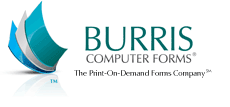Uncovering The Mystery of Paper Weight and the GSM.
by Chelsea Camper | Last Updated December 30, 2015“Paper weight” is a very confusing term for many people. Sometimes paper weight is displayed in the unit “GSM” while other times it’s measured in pounds. But even when measured in pounds there are different types of pounds; Bond pounds, Cover pounds, Bristol pounds, etc.
What does it all mean? Why doesn’t a sheet of 24 lb paper weigh 24 lbs? How do you convert from “GSM” to pounds? What’s the difference in all of the pound weights? And why are pounds abbreviated as “lbs”!?
It’s okay, calm down! We have the answers for you here. (:
How do you convert from “GSM” to pounds?
Converting gsm to pounds isn’t always an “even” process; there are a lot of decimal places involved. It’s easiest to use a chart that highlights the GSM and pound weights most commonly used rounded to the closest whole number. If exact gsm/lb isn’t on chart, use closest or estimate based on the closest above and below.
For example, if your paper is 199gsm, youd be safe to go ahead and use the 200gsm line listed on the chart.
Those who are looking for more exact numbers can use the following:
1 lb Bond paper = 3.75 gsm
1 lb Text paper = 1.463 gsm
1 lb Cover paper = 2.727 gsm
1 lb Bristol paper = 2.222 gsm
1 lb Index paper = 1.818 gsm
1 lb Tag paper = 1.622 gsm
All of these numbers are rounded off to the third decimal place.
What does “GSM” stand for?
The unit “gsm” is grams per square meter. The greater the gsm, the thicker the paper.
Why doesn’t a sheet of 24 lb paper weigh 24 lbs?
That’s because the poundage of the paper isn’t measured per sheet, but per 500 sheets. When the package says the paper is 24 lb paper, that means youd need 500 sheets to make 24 lbs.
Generally the thicker the paper the heavier it is; 80 lb paper would be a lot thicker than 24 lb paper.
What’s the difference in all of the pound weights?
The reason behind all of the different types of paper pound weights is because each type has its own, unique attribute. Some of them are used for certain things that others can’t be while some are naturally thicker and heavier.
Paper Pound Weight Type and Its Unique Attributes:
Bond Paper: Bond papers are somewhat thick, strong papers that are typically used for letterheads. They are often used in professional settings.
Book or Text Paper: Book paper is used for offset printing and can be coated or uncoated. Its basic size is 25×38″ and typically weighs between 22 to 150 lbs.
Cover Paper: When you think “Cover Paper” think about the cover of a book or a postcard. These papers are thick and can be put in the same class as “card stock paper” or “postcard paper.” They’re not easy to fold and can have coated or uncoated finishes.
Bristol Paper: There are a variety of uses for Bristol Paper. Some artists use it to paint and draw on. It can also be used for offset printing and report covers. It is a thick, typically coarser paper that retains ink well.
Tag Paper: Tag paper is strong, thick, and durable paper that is usually used for hang tags. Its standard size is 24×36″.
Index Paper: Remember when your teacher used to have you make flash cards or index cards for class? That was probably done on index paper. Index paper is right in the middle of thick and thin and has a smooth finish to it. Its standard size is 25.5×30.5.
Why are pounds abbreviated as “lbs”?
When you think about the word “pound” what do you think of first? Well, since you’re reading it in the context of weight you think of the definition of “pound” referring to weight, but pound has many other meanings. Let’s look at this example:
I got my dog Fluffers from the pound. It was early so I had to pound on the door to get someone to let me in. When she was a puppy, she was 10 pounds.
In that short paragraph I used “pound” three times with three different meanings. So to make things less (or more?) confusing, we use Latin to help us refer to pound’s meaning of “weight.”
The abbreviation “lbs” isn’t for the English word “pounds” but the Latin word “pounds” from the phrase “libra pondo,” or “pound weight.”
To sum that up: lbs = libra = pounds
Get it? Got it? Good. (:
Now that you have the answers to those questions, do you have any more paper weight questions?
Image: Peter Fuchs

